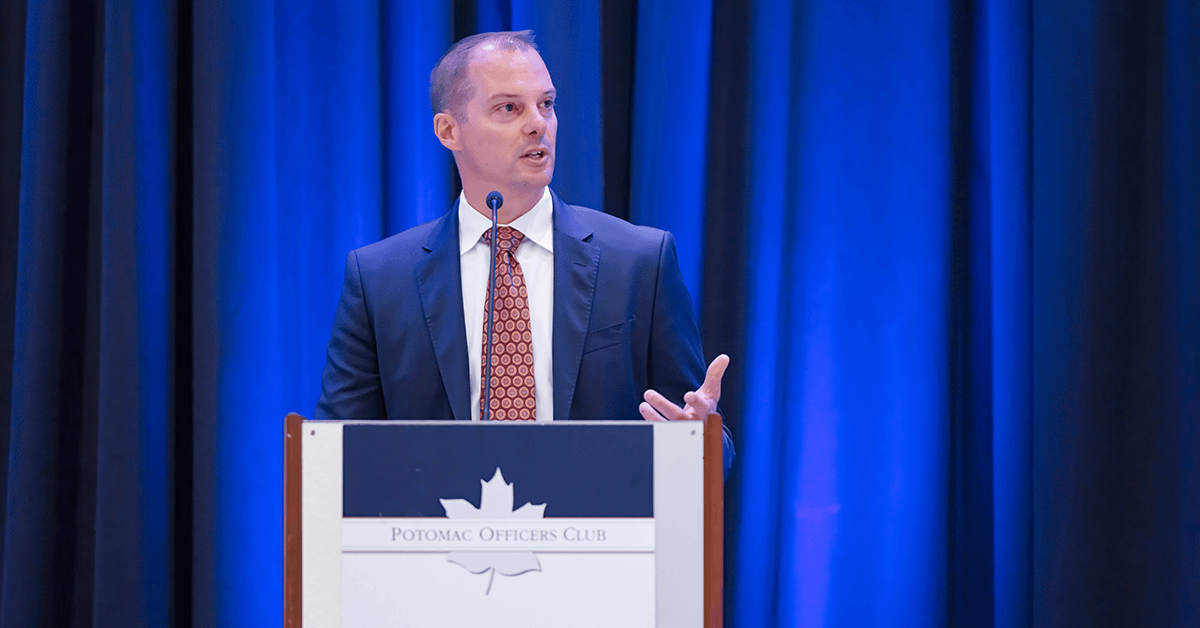The Army Futures Command is planning ahead to ensure war-winning procedures, and with the recent standup of an All-Domain Cross-Functional team, AFC is looking to advance war-readiness capabilities on all fronts for the Army of 2030 and beyond.
Michael Monteleone, director of the AFC’s assured positioning, navigation and timing/space cross-functional team, was appointed to the position in May. In this role, he is responsible for connecting positioning, navigation and timing efforts to allow the Army to compete on a global scale across PNT-contested environments.
Monteleone gave an update on the ways the AFC will look to gain an advantage amid an “increasingly transparent battlefield and rapid changing of technology,” during the Potomac Officer Club‘s 2024 Army Summit.
“Conflict will remain incredibly unpredictable,” Monteleone said. “As we look into the future, close combat will continue to decide battles, and we must remain in harmony, committed to upholding the law of armed conflict. But we have to be preparing for what is going to change.”
Monteleone highlighted six essential functions that the command executes: future operational environment, research, concepts, experimentation, requirements and integration. Their partners, consisting of industry, national, and joint partners, support their mission.
During Monteleone’s speech, he also gave insight into how the AFC will examine capabilities in different environments.
“We execute small experimentation to look at how technology operates in different threat environments, all the way up to large system-of-systems and future-focused ways of employing capabilities within our formations, with soldiers on the kit, providing that feedback so we can iterate and get the best possible product down the road,” Monteleone said.
The APNT/Space CFT director also discussed key challenges the command works to address to ensure future success across all war-fighting domains.
Some of these challenges are implementing a formation-based approach and integrating humans and machines into optimizing formations.
“We know we have to move faster to survive increases in environments, which must not result in a loss of sufficient capability or capacity of the forces to close and destroy our end,” Monteleone exclaimed.
However, to meet these challenges while also “rapidly acquiring” new technologies, the Army must create an efficient foundation.
“We have to consider training,” Monteleone exclaimed. “We have to consider sustainment and leader development, but we also need to re-establish the Army’s ability to see something happen, that exists out there, to be able to rapidly acquire when we’re developing that into a new meaningful way.”
William Nelson, former deputy to the commanding general of the AFC, spoke on some of these challenges as well during the Potomac Officers Club’s 2023 Army Summit.
The Army Summit is one of the numerous events in the Potomac Officers Club’s military forces series. Next, they will host the 2024 Air Defense Summit scheduled on July 23. Join this event to hear updates on the service branch’s technology adoption and modernization initiatives. Register here to save your seat at the highly anticipated event.




